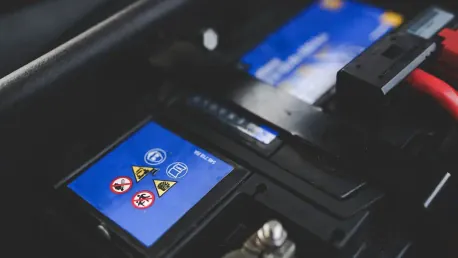In a significant boost to the ongoing efforts to enhance electric vehicle (EV) battery recycling, Tennessee Tech University has been awarded a $4.8 million grant by the U.S. Department of Energy (DOE). The funding is part of a broader $45 million federal initiative that stems from the Infrastructure Investment and Jobs Act of 2021. This grant will support the development of a “mobile preprocessing hub” designed to facilitate the onsite disassembly and shredding of used EV batteries at local collection sites. Such an initiative aims to make the recycling process more economically viable, addressing a critical hurdle in the transition to electric vehicles.
The project is of paramount importance given the Biden-Harris Administration’s ambitious goal to have electric vehicles constitute half of new light-duty vehicle sales by 2030. However, with the impending change in administration to President-elect Donald Trump, and the nomination of Chris Wright—an EV critic—as the head of the DOE, the future of such initiatives might face some uncertainty. Despite the potential policy shifts, the current federal funding underscores the administration’s commitment to bolstering the economics and practicalities of EV battery recycling.
Enhancing Local and National Recycling Efforts
One of the critical aspects of the grant is its dual focus on national and local levels, promoting a more comprehensive EV battery recycling infrastructure. Significant involvement from major waste companies, which are transitioning to electric collection vehicles, illustrates the broader impact and practical applications of this grant. Pingen Chen, a mechanical engineering associate professor at Tennessee Tech, highlights the state’s affordable electricity rates as a unique advantage. Moreover, Chen believes that the proliferation of EVs can significantly help low-income communities by reducing transportation costs, a sentiment echoed by other experts in the field.
Chen’s focus on EV research is not new; his long-standing commitment includes addressing rural concerns about the disposal of EV batteries. He aims to find innovative solutions that are not only efficient and safe but also cost-effective. By creating a mobile preprocessing hub, Tennessee Tech’s project promises to address these concerns directly, ensuring that battery recycling becomes a feasible option even in less populated areas. The project’s potential to decentralize the recycling process and make it accessible in various regions could serve as a model for similar initiatives nationwide.
Broader Impact and Related Grants
The $4.8 million grant to Tennessee Tech University is part of a larger wave of funding aimed at solving challenges related to EV battery recycling. For instance, the Rochester Institute of Technology has received $7 million to create a process for assessing and partially automating the dismantling of end-of-life EV batteries. This project utilizes machine learning to enhance the accuracy and efficiency of battery disassembly, addressing yet another critical aspect of the recycling process. Similarly, the University of Akron has been granted $2 million to recycle plastics from EV battery packs, further expanding the scope of sustainable practices in the industry.
Corporate involvement in these initiatives is equally noteworthy. Caterpillar, for example, has secured a $5 million grant to design battery packs that can be easily dismantled after their lifecycle ends. General Motors has also received $8 million to develop an automated sorting and de-hazarding system for end-of-life EVs. These various efforts, supported by substantial federal funding, reflect a unified push towards more sustainable transportation solutions. By targeting different stages and materials in the EV battery lifecycle, these projects collectively advance the overall efficiency and viability of recycling processes.
A Path Toward Sustainable Transportation
Tennessee Tech University has received a substantial $4.8 million grant from the U.S. Department of Energy (DOE) to advance electric vehicle (EV) battery recycling. This funding is part of a larger $45 million federal initiative under the Infrastructure Investment and Jobs Act of 2021. The grant will help develop a “mobile preprocessing hub” for the onsite disassembly and shredding of used EV batteries at local collection sites. This initiative aims to enhance the economic viability of EV battery recycling, addressing a crucial barrier in the transition to electric vehicles.
The project holds significant importance considering the Biden-Harris Administration’s ambitious target for electric vehicles to account for half of all new light-duty vehicle sales by 2030. However, with the upcoming administration of President-elect Donald Trump, and the nomination of Chris Wright—an EV skeptic—to head the DOE, the future of such initiatives may face uncertainty. Nonetheless, the current federal funding emphasizes a strong commitment to improving the economics and feasibility of EV battery recycling.









